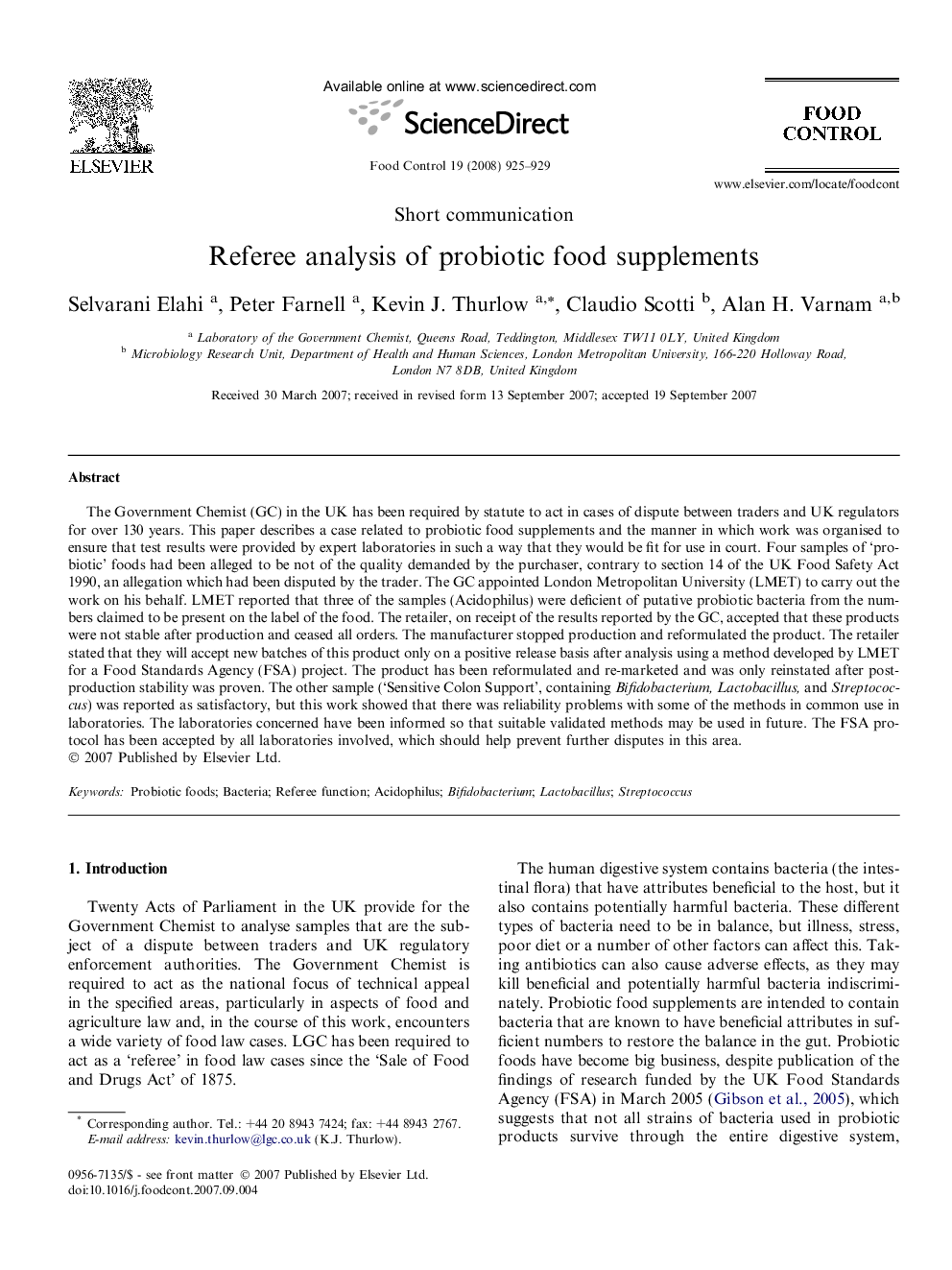| Article ID | Journal | Published Year | Pages | File Type |
|---|---|---|---|---|
| 4560378 | Food Control | 2008 | 5 Pages |
Abstract
The Government Chemist (GC) in the UK has been required by statute to act in cases of dispute between traders and UK regulators for over 130 years. This paper describes a case related to probiotic food supplements and the manner in which work was organised to ensure that test results were provided by expert laboratories in such a way that they would be fit for use in court. Four samples of 'probiotic' foods had been alleged to be not of the quality demanded by the purchaser, contrary to section 14 of the UK Food Safety Act 1990, an allegation which had been disputed by the trader. The GC appointed London Metropolitan University (LMET) to carry out the work on his behalf. LMET reported that three of the samples (Acidophilus) were deficient of putative probiotic bacteria from the numbers claimed to be present on the label of the food. The retailer, on receipt of the results reported by the GC, accepted that these products were not stable after production and ceased all orders. The manufacturer stopped production and reformulated the product. The retailer stated that they will accept new batches of this product only on a positive release basis after analysis using a method developed by LMET for a Food Standards Agency (FSA) project. The product has been reformulated and re-marketed and was only reinstated after post-production stability was proven. The other sample ('Sensitive Colon Support', containing Bifidobacterium, Lactobacillus, and Streptococcus) was reported as satisfactory, but this work showed that there was reliability problems with some of the methods in common use in laboratories. The laboratories concerned have been informed so that suitable validated methods may be used in future. The FSA protocol has been accepted by all laboratories involved, which should help prevent further disputes in this area.
Related Topics
Life Sciences
Agricultural and Biological Sciences
Food Science
Authors
Selvarani Elahi, Peter Farnell, Kevin J. Thurlow, Claudio Scotti, Alan H. Varnam,
